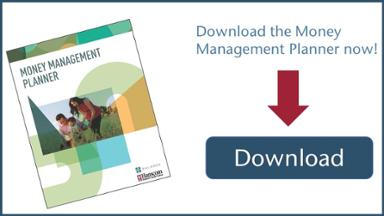Money management can be intimidating and overwhelming, but it doesn’t have to be. By developing the right money habits and strategies, you can keep more of your hard-earned money in your pocket. Here are four smart money habits you can adopt this year that will help you boost your finances.
- Set Financial Goals. The first step to making smart financial decisions is setting specific financial goals. Whether it’s saving for a home down payment or retirement, having clear objectives will serve as a roadmap for reaching your desired destination.
Start by writing down your goals and then breaking them down into smaller steps that are easy to track and measure. For instance, if one of your goals is to save $50,000 for a house in five years, break that goal down into smaller goals such as saving $416 a month or $9,600 per year.
Setting goals you know you can achieve will make it easier to stay motivated! - Cut Spending Where Possible. One of the best ways to keep more of your money is by cutting unnecessary expenses out of your budget.
With an increasing number of subscription services popping up every day, it’s easy to get caught up in spending too much on items you don’t need or use regularly. Take the time to go through all of the bills and subscriptions you pay each month and cancel any services you don’t need or use very often. That extra cash can be used towards savings or debt reduction instead. - Automate Savings & Bill Payments. Another great way to stick with good financial habits is by automating savings deposits and bill payments.
Automation takes emotions out of the equation by removing the temptation of managing funds manually, lessening the chance you'll decide to skip putting money into your savings account. Automated transfers also reduce the chances of human error when entering numbers into an account, which can lead to costly fees from missed payments or overpayments.
Overall, automation helps make sure that bills are paid on time while still allowing some room in the budget for savings contributions as well. - Create an Emergency Fund. Emergencies happen - whether it’s unexpected car repairs or medical bills - so it's important that you have a rainy day fund ready when emergencies pop up.
Experts recommend having at least three months' worth of living expenses saved up in case of emergency; however, six to nine months is even better.
It may take some time to build up this fund but even small contributions will move you forward toward achieving this goal, so start today. Once your fund is established, refrain from using this money unless absolutely necessary since it won't be available when you really really need it!
Learning how to make smart financial moves won't happen overnight, but with dedication and consistency, you can create positive financial habits over time. Setting realistic financial goals, cutting unnecessary expenses out of your budget, automating savings deposits/bill payments, and creating an emergency fund are all great steps toward achieving greater financial success. By applying these strategies regularly along with other money management techniques like budgeting, you can set yourself up for long-term financial stability.
Others are reading:














Comment